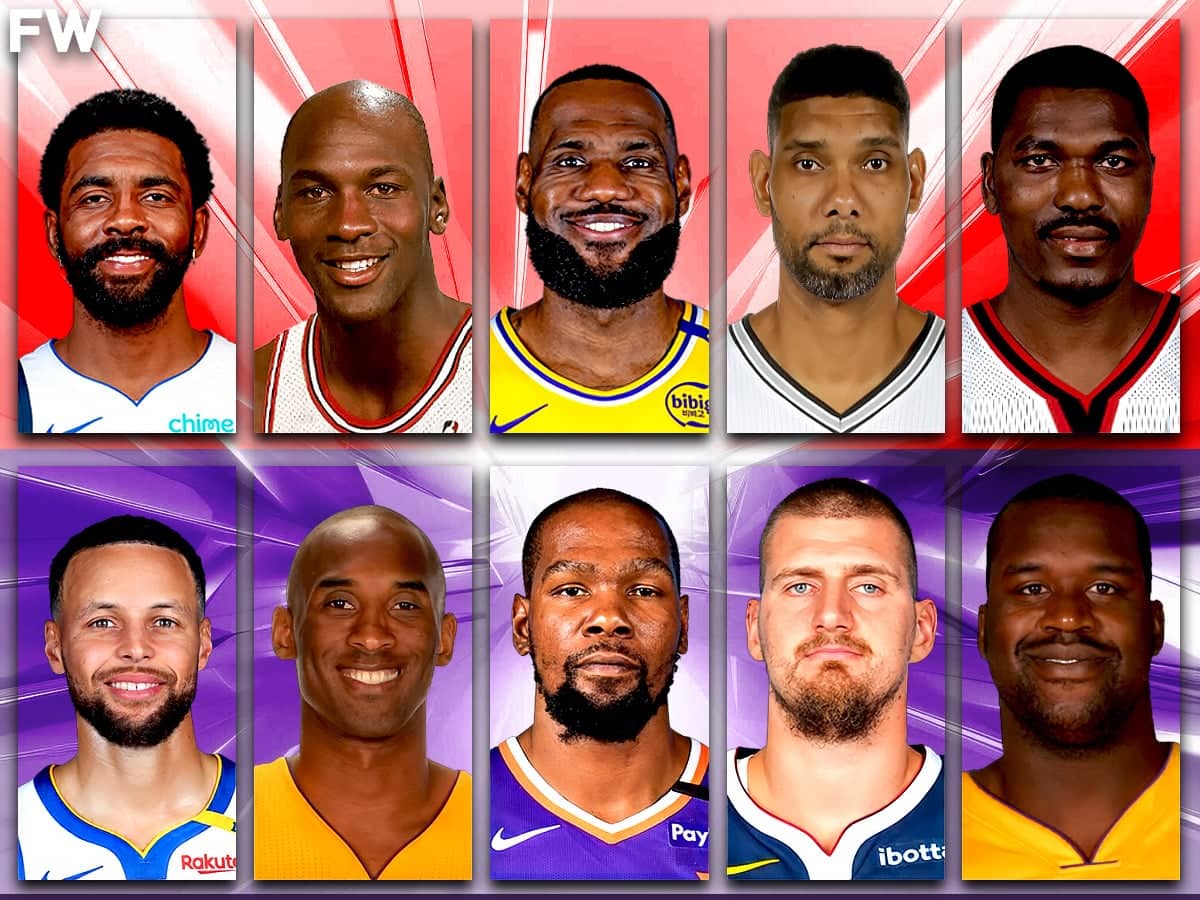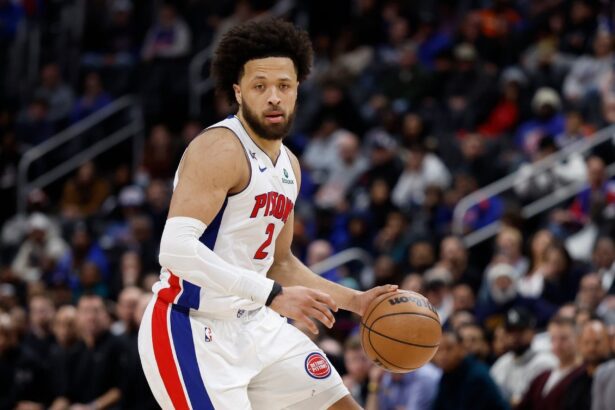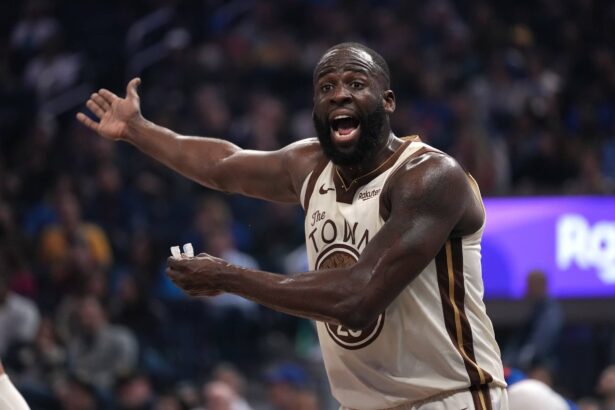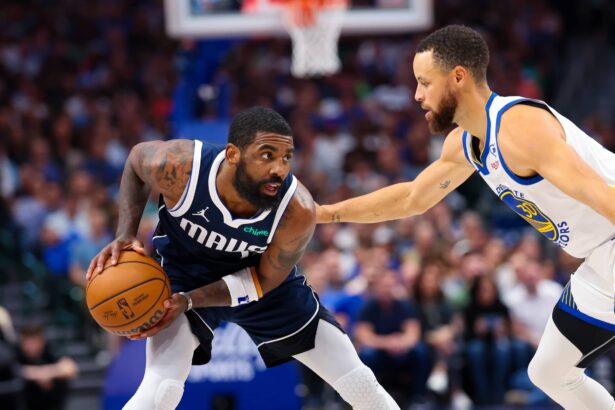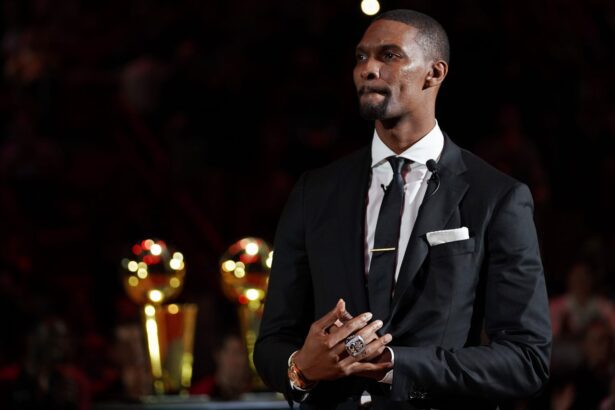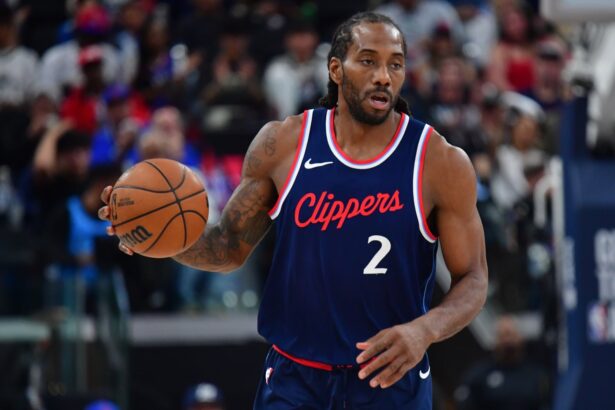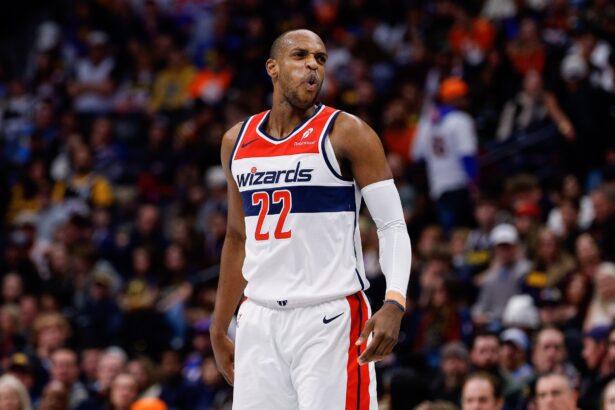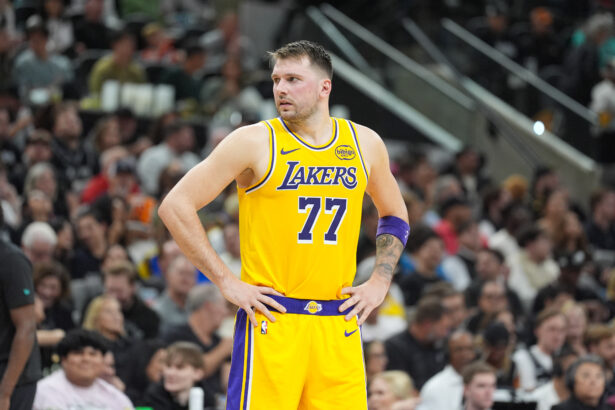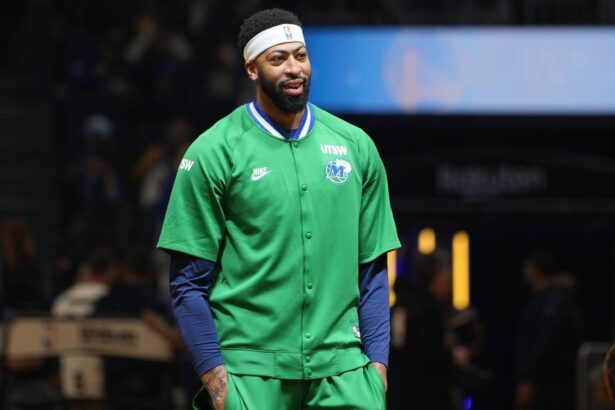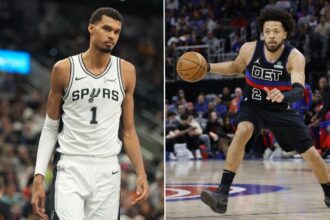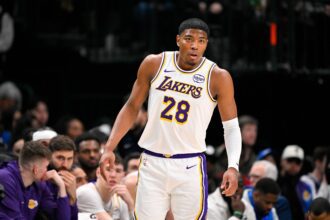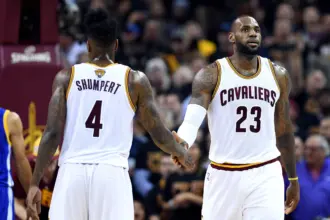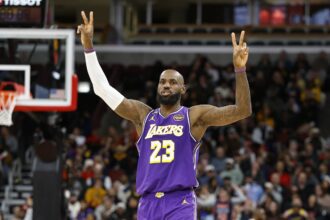The basketball world thrives on debates, but few spark the imagination like pitting all-time greats against each other. When coming across an interesting Reddit post, the question of who would win a matchup between two stacked superteams.
On one side, we have a squad (Team Jordan) headlined by Kyrie Irving, Michael Jordan, LeBron James, Tim Duncan, and Hakeem Olajuwon. Across from them? A juggernaut (Team Bryant) led by Stephen Curry, Kobe Bryant, Kevin Durant, Nikola Jokic, and Shaquille O’Neal.
Originally, the matchup included Kawhi Leonard and Kevin Garnett, but swapping in Durant and Shaq elevates the intrigue to another level. Here is each superteam’s full lineup and we will name each one by their team captain: Team Jordan and Team Bryant.
Team Jordan: Kyrie Irving, Michael Jordan, LeBron James, Tim Duncan, Hakeem Olajuwon
Team Bryant: Stephen Curry, Kobe Bryant, Kevin Durant, Nikola Jokic, Shaquille O’Neal
These two stacked lineups are loaded with scoring, playmaking, defense, and basketball IQ. Seven games. One winner. Let’s break down who takes the crown in this ultimate basketball matchup.
Kyrie Irving vs. Stephen Curry
Kyrie Irving is arguably the most skilled ball-handler and finisher in this matchup. In a matchup with Curry, Kyrie would look to exploit his superior ability to attack the rim and create mid-range opportunities. While not as prolific a three-point shooter, Kyrie’s fearless approach in clutch moments could give his team an edge in crunch time.
On the other hand, Stephen Curry’s ability to hit from anywhere on the court, often several feet behind the arc, forces opponents to pick him up earlier than usual. Against Kyrie, Curry’s quick release and off-ball movement would likely create consistent scoring opportunities. While Kyrie might have the edge in finishing at the rim, Curry’s shooting efficiency and ability to stretch the defense make him the more impactful player overall in this duel.
Michael Jordan vs. Kobe Bryant
Michael Jordan set the standard for excellence on both ends of the floor. His unparalleled scoring ability, physicality, and mid-range mastery make him the ultimate competitor. Against Kobe, Jordan’s superior strength and efficiency would give him the upper hand, especially in late-game situations where his tenacity often reaches another level.
Kobe Bryant, often compared to Jordan, brings his own brand of competitiveness and scoring brilliance. With perhaps an even deeper bag of offensive moves, Kobe’s footwork and three-point shooting provide him tools to challenge MJ. However, Kobe’s tendency for tough shot-making might work against him in a head-to-head with Jordan’s laser-focused efficiency.
LeBron James vs. Kevin Durant
LeBron James is the epitome of a complete basketball player. His combination of size, strength, and playmaking is unmatched, and his ability to control the pace of a game is a major asset. Against Durant, LeBron’s physicality would be a key factor, allowing him to bully KD in transition and when driving to the rim.
Kevin Durant counters with an offensive skill set that is nearly unstoppable. At nearly 7 feet tall with guard-like agility, KD can shoot over anyone, including LeBron. While LeBron’s physical dominance might make a difference in the paint, Durant’s scoring versatility and unguardable release would ensure he gets his points. In this matchup, it’s a clash of power versus finesse, with the outcome likely determined by team dynamics rather than individual dominance.
Tim Duncan vs. Nikola Jokic
Tim Duncan is the model of consistency and fundamental excellence. As one of the greatest defenders and post scorers in NBA history, Duncan would anchor both ends of the floor. Against Jokic, his ability to stay disciplined and control the paint would be a key advantage. Offensively, Duncan’s steady mid-range game and low-post footwork could wear down Jokic for a series.
Nikola Jokic brings a unique style of playmaking and scoring to the table. As the best passing big man in NBA history, Jokic’s ability to orchestrate an offense would challenge Duncan in ways few others could. While Duncan’s defense and championship pedigree give him an edge, Jokic’s offensive creativity could shift the dynamic in key moments.
Hakeem Olajuwon vs. Shaquille O’Neal
Hakeem Olajuwon’s agility and finesse make him one of the most skilled centers to ever play. His footwork allows him to score over even the most dominant defenders. Against Shaq, Hakeem’s mobility and defensive instincts would be critical in limiting O’Neal’s impact. On offense, Olajuwon’s ability to step out and hit mid-range shots would stretch Shaq and create opportunities.
Shaquille O’Neal, however, is a force of nature unlike any other. His sheer size, strength, and dominance in the paint make him nearly unguardable one-on-one. Against Hakeem, Shaq’s power would likely wear him down over a series, especially on the boards and in the low post. While Olajuwon’s finesse and defensive prowess could mitigate Shaq’s impact, the Diesel’s ability to overpower nearly anyone gives him a slight edge in this matchup.
Team Jordan Advantages
Team Jordan boasts an unrivaled combination of versatility and dominance across all five positions. Michael Jordan and LeBron James alone provide an unstoppable mix of scoring, playmaking, and defensive intensity, capable of taking over games in multiple ways.
Hakeem Olajuwon anchors the paint with elite rim protection and scoring versatility, while Tim Duncan adds another layer of defensive reliability and fundamentally sound play on both ends of the court. Kyrie Irving’s creativity and clutch shot-making round out a lineup that can adapt to any style of play.
Defensively, Team Jordan’s strength lies in their ability to switch seamlessly while maintaining high-level pressure. Jordan, LeBron, and Duncan are all elite defenders, capable of locking down their matchups and disrupting the offensive flow.
Hakeem’s shot-blocking and rebounding would provide a safety net, while Kyrie’s offensive creativity could exploit weaknesses in Team Bryant’s perimeter defense. With such a balanced roster, Team Jordan has the tools to control both pace and physicality.
Team Bryant Advantages
Team Bryant thrives on offensive firepower and elite shot-making. Stephen Curry and Kevin Durant stretch defenses to their breaking point with their deep-range shooting and ability to score efficiently from anywhere on the floor.
Kobe Bryant adds a relentless scoring mentality and unmatched footwork, giving the team an edge in high-pressure moments. Shaquille O’Neal’s dominance in the paint, combined with Nikola Jokic’s playmaking from the post, creates an offensive dynamic that is both unstoppable and unconventional.
What makes Team Bryant especially dangerous is their unpredictability and spacing. With Curry and Durant pulling defenders out to the perimeter, Shaq has more room to operate in the paint, and Jokic can exploit passing lanes to set up easy buckets.
Defensively, the team’s size and length—highlighted by Durant, Jokic, and Shaq—could challenge Team Jordan in the half-court. Team Bryant’s ability to push the tempo and capitalize on mismatches gives them a unique edge in this hypothetical series.
Who Wins In A 7-Game Series?
Stephen Curry sets the tone for Team Bryant in Game 1, dropping 33 points, including 7 three-pointers, and keeping the defense on its heels all night. Kobe Bryant adds 28 points with a clutch fourth-quarter surge, while Shaquille O’Neal dominates inside with 24 points and 15 rebounds.
Team Jordan stays competitive behind Michael Jordan’s 36-point effort and LeBron James’ near triple-double (24 points, 11 assists, and 9 rebounds), but Team Bryant’s spacing and Curry’s long-range bombs prove too much in the opener.
Michael Jordan responds with a masterclass in Game 2, pouring in 40 points on 16-of-25 shooting while locking down Kobe defensively. Hakeem Olajuwon shines with 22 points, 12 rebounds, and 4 blocks, neutralizing Shaq’s dominance in the paint. LeBron contributes 25 points and 10 assists, orchestrating a balanced attack.
Despite Kevin Durant’s 30-point performance, Team Bryant struggles with turnovers as Nikola Jokic records 6 but faces heavy defensive pressure. Team Jordan evens the series with suffocating defense and transition play.
A thriller sees Kyrie Irving take over in crunch time in Game 3, scoring 12 of his 27 points in the fourth quarter and overtime. Michael Jordan adds 35 points and the game-winning jumper with 5 seconds left in OT.
LeBron flirts with a triple-double again (20 points, 12 rebounds, 9 assists) and Duncan controls the boards with 18 rebounds. On the other side, Kobe scores 32 points, and Durant chips in 26, but Curry’s cold shooting night (4-of-13 from deep) dooms Team Bryant. Team Jordan takes a 2-1 series lead.
In Game 4, Shaquille O’Neal asserts his dominance with 30 points, 18 rebounds, and 3 blocks, overpowering Hakeem in the post. Stephen Curry rebounds with 29 points and 10 assists, while Durant’s 27 points on efficient shooting keeps Team Bryant in control.
Team Jordan leans on Jordan’s 38 points and Hakeem’s 25-point, 10-rebound effort, but turnovers and foul trouble for Duncan prove costly. Team Bryant ties the series as their offensive firepower overwhelms Team Jordan.
LeBron James takes center stage in Game 5, delivering 28 points, 12 assists, and 10 rebounds in a vintage all-around performance. Michael Jordan adds 34 points, including a dagger mid-range jumper in the final minute.
Hakeem outplays Shaq with 18 points, 14 rebounds, and 5 blocks, anchoring Team Jordan’s defense. Despite Curry’s 31 points and Durant’s 26, Kobe struggles with efficiency, shooting 9-of-24, as Team Bryant falls short in a tightly contested game.
Facing elimination in Game 6, Team Bryant responds with an offensive explosion. Kobe Bryant leads the charge with 36 points and 7 assists, channeling his inner Mamba mentality. Durant adds 28 points and 8 rebounds, while Curry drops 25 points with 6 three-pointers.
Shaq dominates again, posting 26 points and 16 rebounds, outmuscling Hakeem in the paint. Michael Jordan scores 40 in the loss, but Team Bryant’s balanced scoring and clutch execution force a Game 7.
In the decisive Game 7, Michael Jordan delivers an all-time performance with 45 points, 6 rebounds, and 5 assists, sealing his legacy as the ultimate closer. LeBron contributes 20 points, 11 assists, and 9 rebounds, controlling the pace and finding key shooters in critical moments.
Hakeem finishes with 19 points, 13 rebounds, and 4 blocks, neutralizing Shaq in the second half. Despite Curry’s 28 points and Durant’s 24, Kobe’s late-game heroics fall short as Team Jordan’s defense tightens in the final minutes. Team Jordan wins the series 4-3, cementing their dominance in this clash of basketball titans.
Final Result: Team Jordan vs. Team Bryant 4-3
Finals MVP: Michael Jordan

